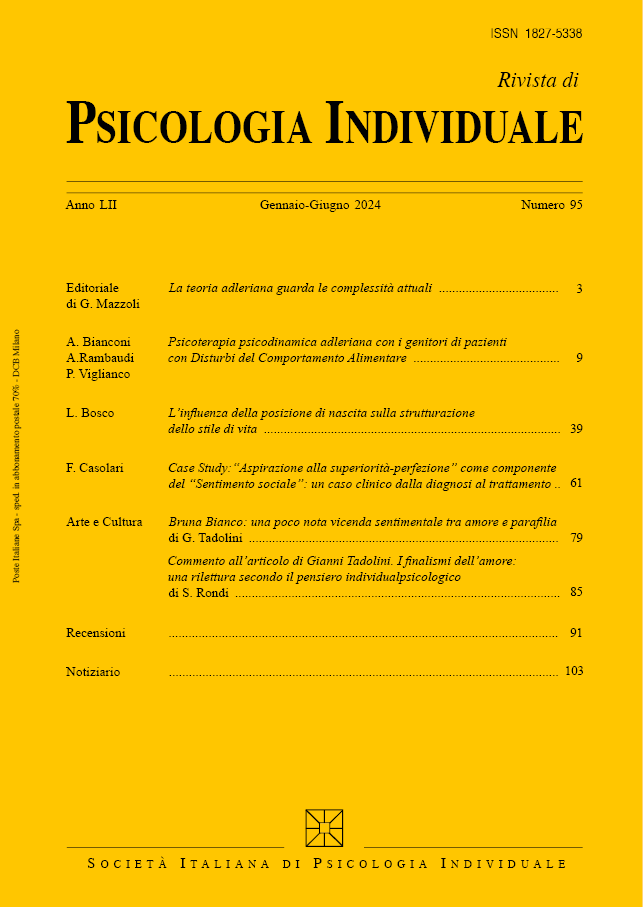ANALYTICAL ASPECTS OF REGRESSION
Keywords:
regression, psychotherapy, countertransference, regressione, psicoterapia adleriana, controtransfertAbstract
The meaning of “regression” in dynamic psychology is a return to previous forms of development of thought, emotive, affective, objectual relations and behavioural modalities. Freud at first, in “The interpretation of dreams”, recognises three kinds of regression: topical, formal and temporal. The individual psychology shows an original therapeutic approach to the regressive dependence, due to two lines of development: one by Seidel, who founds an interpretation and an intervention in “psychological deficit”; the other one by Schmidt, who refears above all to the creative potentiality of regression. In the adlerian analysis,we can use two types of regression: the first one, the commonest, is the return to experimented already experiences; the second one refears to a creative ability that must be stimulated in patients, taking them to remember and relive the past. The analyst is always intimately involved in his patient's and group's movements, and he will have to therapeutically modulate even his own regression. Furthermore, it seems that the situations of regression and dependence might concern extremely close the formative process, because they educate to the ability to approach the weak aspects to tolerate frustration and aggressiveness, to limit the therapeutic omnipotence and to get close to loneliness, creatively and projectually






